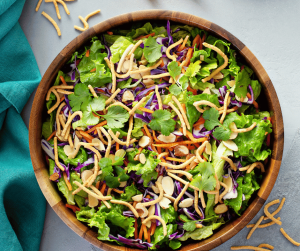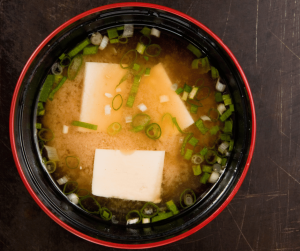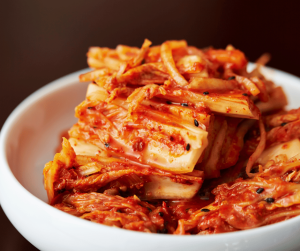
Poop & Weight Loss/Gain: How Your Bowel Health Impacts Your Scale
Your scale isn’t measuring fat — it’s measuring what your gut hasn’t let go of. Hidden stool retention, slow motility, and gut bacteria can quietly

Home » Unraveling the Secrets of Traditional Asian Diet for Optimal Gut Health
Gut health plays a vital role in our overall well-being. A healthy gut microbiome is linked to numerous health benefits, including improved digestion, enhanced immune function, and even mental well-being. In the pursuit of optimal gut health, exploring different dietary approaches can be enlightening. One such approach is the traditional Asian diet, which has long been recognized for its positive impact on gut health. In this blog post, we will delve into the secrets of the traditional Asian diet and its profound influence on maintaining a healthy gut.
The traditional Asian diet is characterized by its emphasis on whole foods, plant-based ingredients, and minimal processed foods. It is a diverse and balanced approach to eating, rich in a wide variety of vegetables, fruits, legumes, and grains. The diet typically includes modest amounts of animal protein, with an emphasis on lean sources such as fish and poultry. This dietary pattern has been practiced for centuries and has contributed to the overall health and longevity of Asian populations.

Before we explore the impact of the traditional Asian diet on gut health, let’s understand the gut microbiome and its significance. The gut microbiome refers to the trillions of microorganisms that reside in our digestive tract. These microorganisms play a crucial role in digestion, nutrient absorption, and immune system regulation. Moreover, they influence our metabolism and can even impact our mental health. Therefore, maintaining a healthy and diverse gut microbiota is essential for overall well-being.

The traditional Asian diet incorporates several key elements that promote gut health effectively. Let’s explore these elements in detail:
Abundance of Plant-Based Foods Plant-based foods, such as vegetables, fruits, and legumes, form the foundation of the traditional Asian diet. These foods are rich in dietary fiber, which acts as a prebiotic, nourishing the beneficial bacteria in our gut. Fiber promotes healthy digestion, prevents constipation, and supports a diverse and thriving gut microbiota.
Fermented Foods Fermented foods are a cornerstone of the traditional Asian diet and are celebrated for their gut health benefits. Foods like kimchi, miso, tempeh, and fermented soybean paste are packed with probiotics, live beneficial bacteria that support gut health. Regular consumption of fermented foods enhances the diversity and balance of the gut microbiota, leading to improved digestion and a strengthened immune system.
Healthy Fats and Omega-3 Fatty Acids The traditional Asian diet incorporates healthy fats, such as those found in fish, nuts, and seeds. These fats are rich in omega-3 fatty acids, which have potent anti-inflammatory properties. By reducing inflammation in the gut, omega-3 fatty acids promote a healthier gut environment and support optimal gut health.
In recent years, the globalization of food culture and the adoption of Western dietary patterns have posed challenges to the traditional Asian diet and gut health. Processed foods and increased animal product consumption have become more prevalent, leading to a decline in the consumption of traditional Asian staples. This shift has negatively impacted gut health, contributing to an increase in digestive issues and chronic diseases.
Preserving and incorporating elements of the traditional Asian diet into our modern lifestyles can have profound benefits for gut health. Here are a few tips to help you embrace the traditional Asian dietary principles:
Emphasize plant-based meals: Increase your consumption of vegetables, fruits, legumes, and whole grains to boost fiber intake and support gut health.
Experiment with fermented foods: Incorporate kimchi, miso, tempeh, and other fermented foods into your diet. These foods not only add a unique and tangy flavor to your meals but also provide a healthy dose of probiotics for gut health.
Opt for healthy fats: Include sources of healthy fats like fatty fish (such as salmon and sardines), nuts, and seeds in your diet. These foods are not only rich in omega-3 fatty acids but also offer other beneficial nutrients for overall health.
Limit processed foods: Minimize the consumption of processed and packaged foods, which are often loaded with additives, preservatives, and unhealthy fats. These foods can disrupt the balance of your gut microbiota and negatively impact gut health.
Practice mindful eating: Traditional Asian cultures often emphasize the importance of mindful eating. Slow down, savor your meals, and pay attention to your body’s hunger and fullness cues. This mindful approach to eating can enhance digestion and nutrient absorption.

The traditional Asian diet offers valuable insights into promoting optimal gut health. Its focus on plant-based foods, fermented foods, and healthy fats provides a nourishing environment for the gut microbiome. By embracing elements of the traditional Asian diet, we can support our gut health, enhance digestion, and promote overall well-being.
Incorporating these dietary principles into our modern lifestyles can be a transformative journey. By making conscious choices and prioritizing whole, unprocessed foods, we can reclaim the wisdom of traditional Asian diets and reap the benefits for our gut health.
Remember, small changes can make a big difference. Start by adding more vegetables and fermented foods to your meals, and gradually explore traditional Asian recipes to expand your culinary horizons. Let’s celebrate the secrets of the traditional Asian diet and nourish our gut for a healthier, happier life.

Your scale isn’t measuring fat — it’s measuring what your gut hasn’t let go of. Hidden stool retention, slow motility, and gut bacteria can quietly

Your poop is a real-time report card on your gut health—and most people are ignoring it. From color changes to weird shapes to the clues

Wheat isn’t the villain—it’s the kind of wheat that’s wrecking your gut. From ancient grains to modern hybrids, discover how today’s wheat triggers inflammation, worsens

Your gut isn’t just digesting food—it’s controlling your hunger, energy, and even how fast you burn fat. Inside you is a powerful hormone called GLP-1,

Happy Poops.
What about your friends?